On July 19, 1980, the Luzhniki Grand Sports Arena housed the opening ceremony of the 22nd Summer Olympic Games.
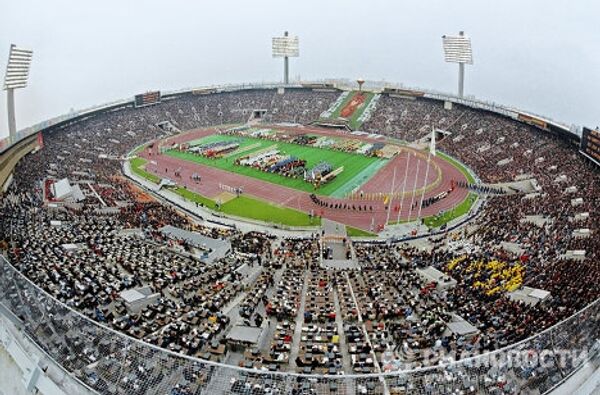
On July 19, 1980, the Luzhniki Grand Sports Arena housed the opening ceremony of the 22nd Summer Olympic Games.
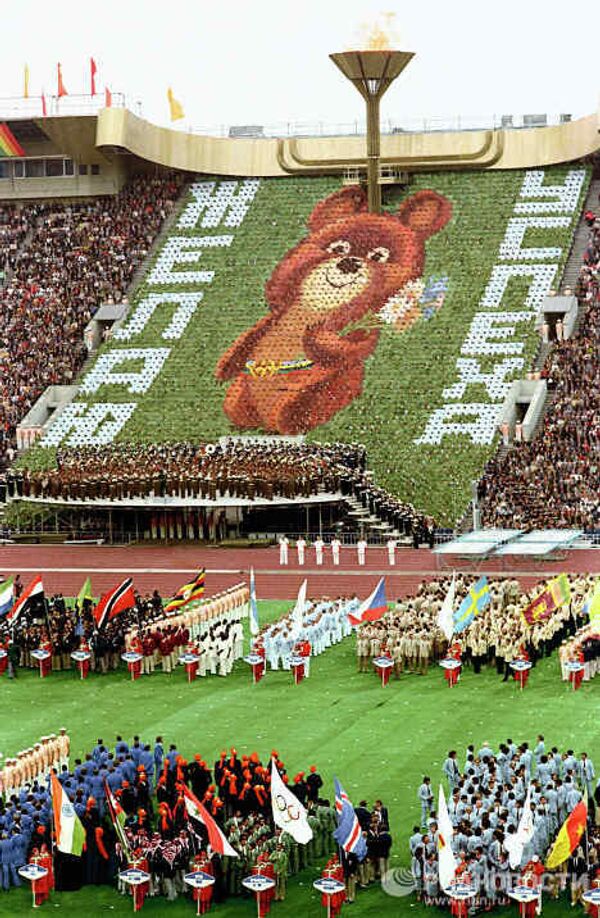
Three years earlier, the national casting for the Olympic mascot began. On December 19, 1977, the Olympic Misha bear, strong and dexterous as all athletes, became the mascot of the 1980 Olympics. Misha had to compete with an aurochs, an eagle, a bee, a horse, a rooster and many other equally worthy animals. However, the bear won in the end.
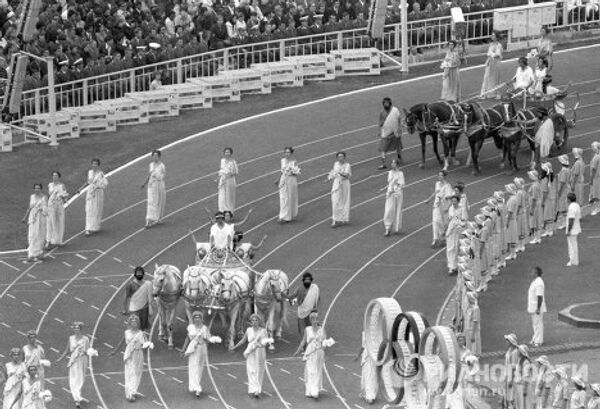
In the beginning of the opening ceremony, young men and women dressed in Greek togas stepped out onto the arena with a procession of three chariots. This procession embodied the continuity of ancient Olympic ideas with the modern Olympic movement.
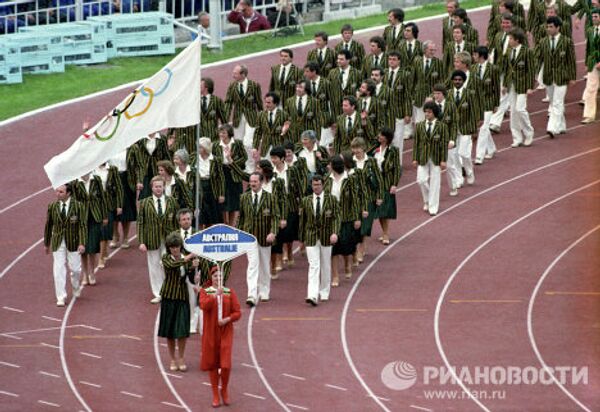
The 1980 Olympics in Moscow coincided with the peak of political confrontation between the Warsaw Pact, which included the Soviet Union, Bulgaria, Albania and other countries, and NATO countries. Sixty-four nations, including the United States, Canada, Japan and West Germany, boycotted the Olympic Games in Moscow following the Soviet Union’s introduction of troops in Afghanistan. Some athletes, for example, from Britain, France and Greece, came individually. The most numerous Western European national team was Italy. Meanwhile, 24 African countries, which boycotted the 1976 Olympic Games in Montreal, participated in the Moscow Olympics. Sixteen of the teams that came despite their government’s boycott carried the Olympic flag, including Australia, Andorra, Belgium, Britain, the Netherlands, Denmark, Ireland, Spain, Italy, Luxemburg, Norway, Portugal, Puerto Rico, San Marino, France and Switzerland.
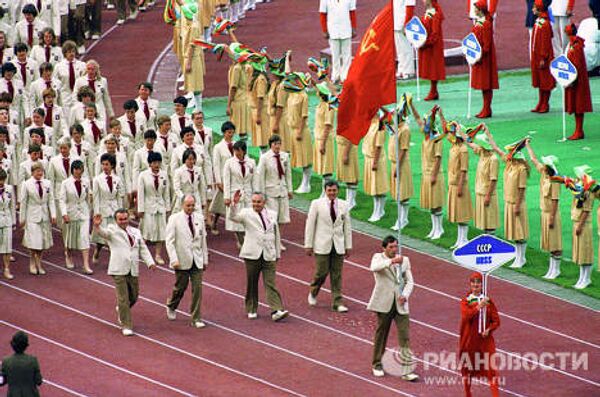
The Soviet team closed up the procession. The delegations then lined up on the grass in front of the central stands.
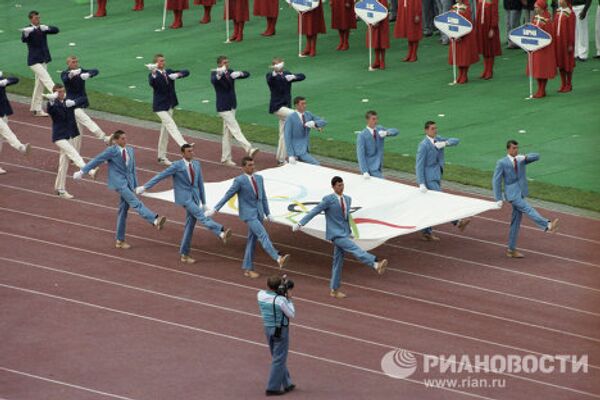
Flag-bearers, escorted by 22 athletes carrying white doves in their hands, brought the Olympic flag into the stadium.
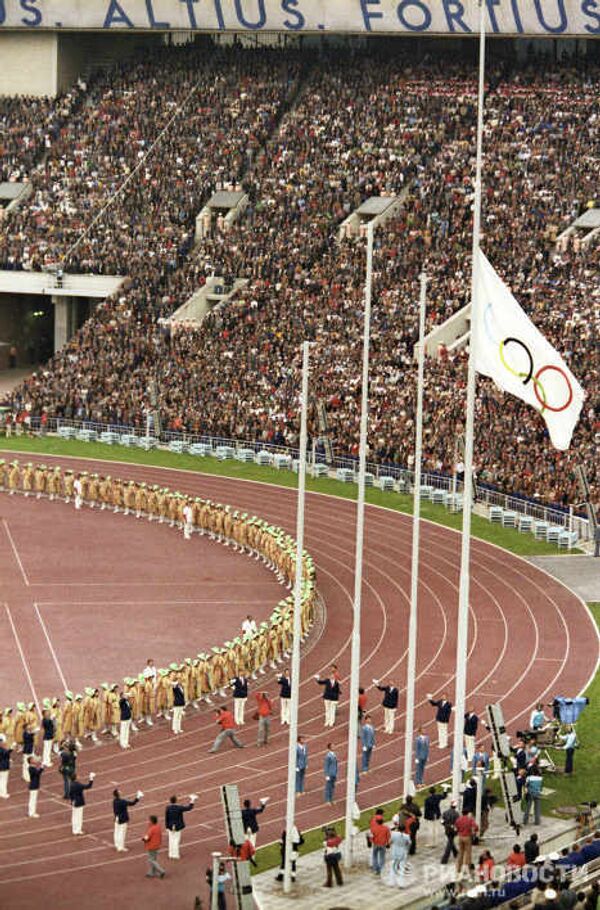
The white banner with five colored rings was raised to the Olympic anthem. The doves flew into the sky simultaneously.
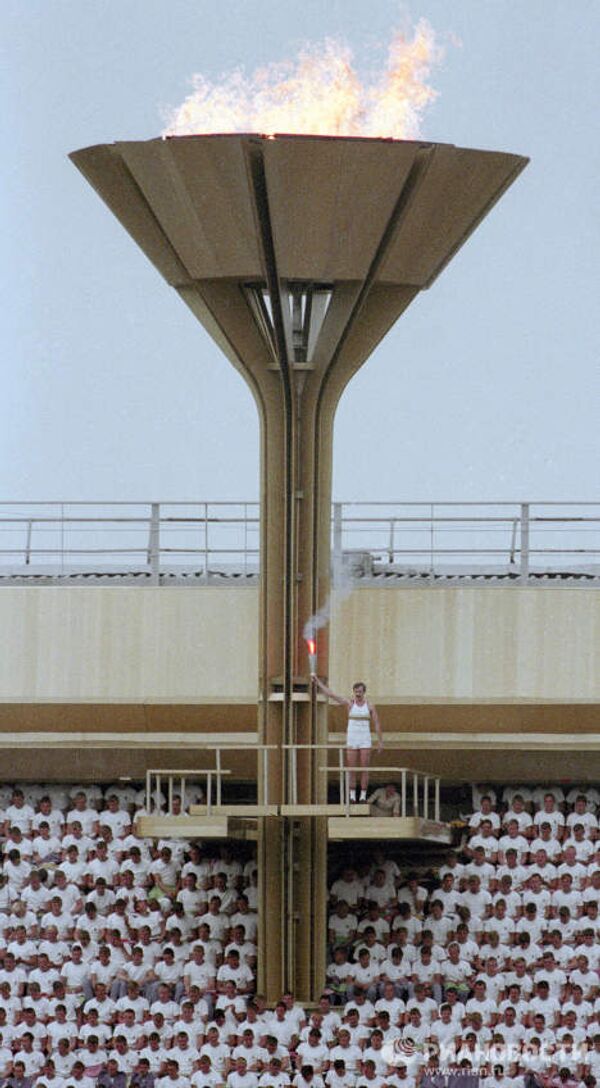
Having completed a circle around the stadium, three-time Olympic champion Viktor Saneyev passed the Olympic torch to renowned basketball player and 1972 Olympic champion Sergei Belov (photo). An improvised track of snow-white panels appeared on the Eastern stands. Belov, holding the burning torch high above his head, ran along the track. He lit the Olympic Flame.
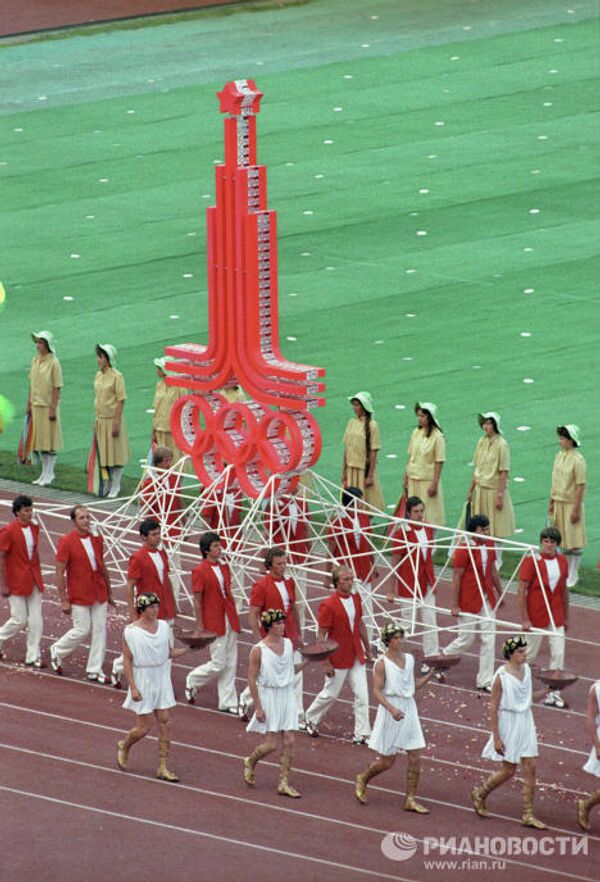
The official part of the 1980 Olympics’ opening ceremony ended with the anthem of the Soviet Union. After that, the delegations left the stadium and the last part of the ceremony, an athletic and artistic performance, began.
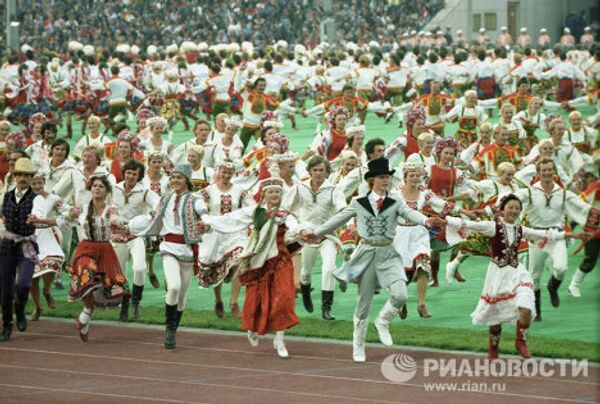
The flag-bearers and athletes in gymnastics outfits lined up in a formation depicting the sun in the center of the field and columns of young men and women, wearing traditional costumes of the Soviet Union’s 15 republics, rushed towards them from all around.
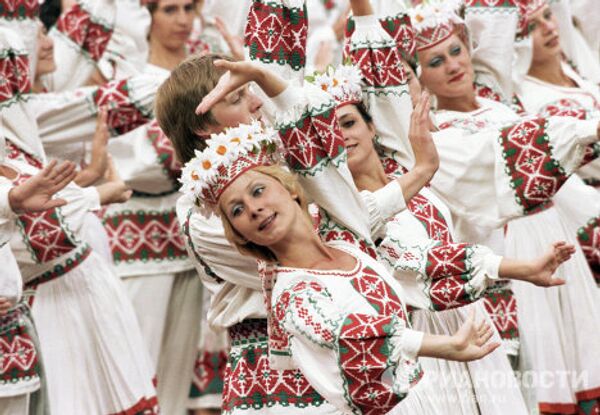
The stadium’s pitch began flickering with colorful pictures formed by thousands of participants in the Peoples’ Friendship choreographed dance.
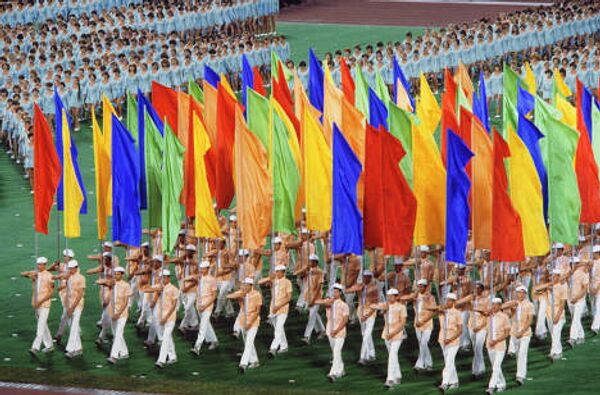
Over 16,000 athletes, amateur and professional performers participated in the dances and athletic stunts of the opening ceremony, which lasted almost three hours.
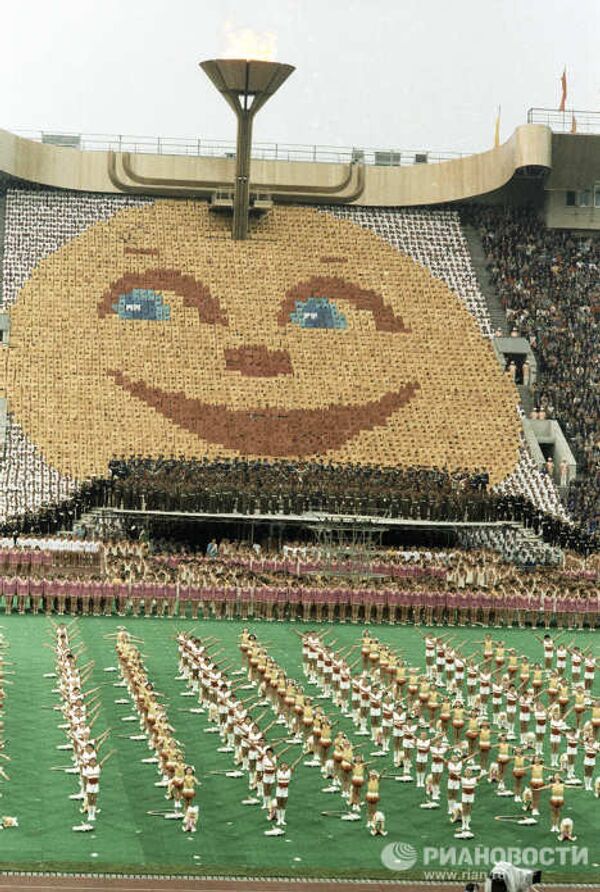
The opening ceremony took place against the background of a great live mosaic created on the stadium’s Eastern stands by 4,500 specially trained athletes. It was a giant color screen. Each participant in the screen had a set of colored flags, caps, detachable shirtfronts and painted panels. As they changed the colored flags and other accessories, the participants consequently formed 174 mosaic images on the screen.
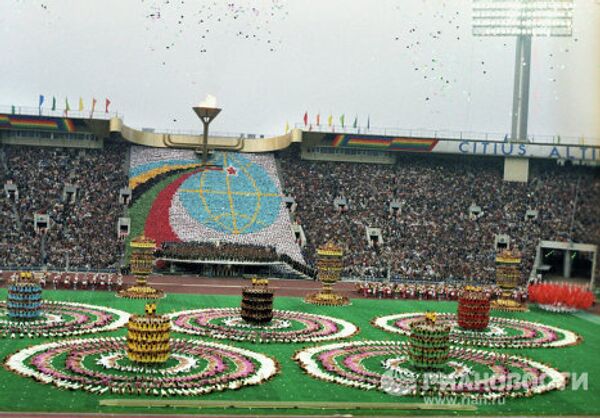
At the end of the event, the screen showed a picture of the globe and a star on it, symbolizing Moscow, the capital of the 22nd Olympic Games.
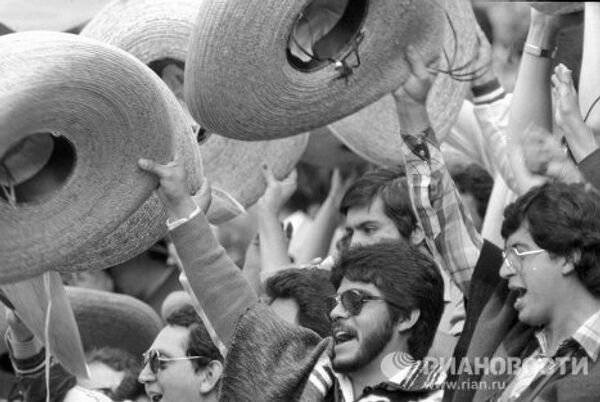
The Olympic Games were a major event in the life of the USSR. These were the first Olympics hosted in a socialist country. This event helped the Soviet Union open its doors to foreigners.

